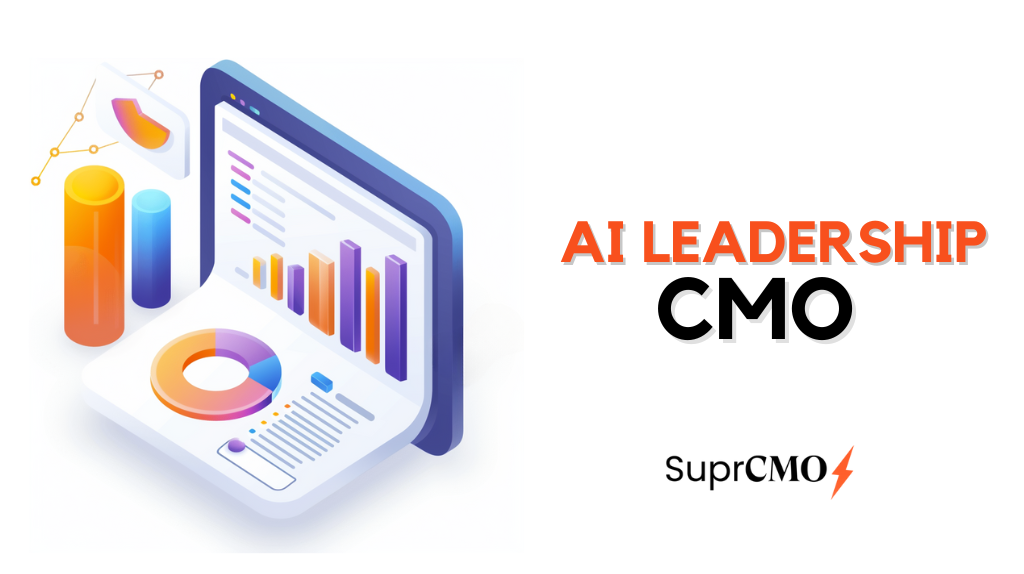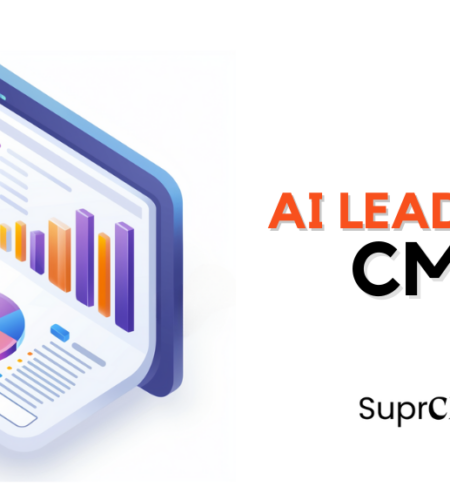
As businesses continue to embrace the power of artificial intelligence (AI), the role of Chief Marketing Officers (CMOs) is radically transforming. The rise of AI-powered virtual CMOs is changing the face of marketing leadership, leading the charge in data-driven growth.
With the ability to analyze vast amounts of data in real time and make data-driven decisions, virtual CMOs can provide businesses with a level of insight and agility that was previously impossible. This allows them to develop personalized marketing campaigns tailored to individual customers’ specific needs and preferences, driving engagement and conversion.
One of the key benefits of virtual CMOs is their ability to provide businesses with a deeper understanding of their customers.
Reimagining the CMO Role: How Virtual CMOs and AI are Transforming Data-driven Marketing
The Chief Marketing Officer (CMO) role is evolving, and virtual CMOs, empowered by artificial intelligence (AI), are at the forefront of this transformation. By leveraging AI to analyze large amounts of data in real-time and develop personalized marketing campaigns, virtual CMOs are driving growth and innovation in businesses across industries.
One key benefit of virtual CMOs is their ability to provide businesses with a deeper understanding of their customers. By analyzing large amounts of data on customer behavior, preferences, and needs, virtual CMOs can develop targeted marketing campaigns tailored to individual customers’ specific needs and preferences.
Unleashing the Power of Data: Exploring the Potential of Virtual CMOs and AI in Marketing
The marketing landscape is evolving unprecedentedly, and businesses are increasingly turning to technology to stay ahead of the competition. One of the most significant developments in this area is the rise of virtual CMOs, or Chief Marketing Officers, powered by artificial intelligence (AI). These virtual CMOs are transforming how businesses approach marketing, providing them with the tools and insights needed to develop more effective strategies.
One key benefit of virtual CMOs is their ability to leverage AI to analyze large amounts of data in real-time. This allows them to identify patterns and trends that can inform marketing strategies and help businesses stay ahead of the competition. Virtual CMOs can also develop personalized marketing campaigns that are tailored to the specific needs and preferences of individual customers, driving engagement and conversion.
The Rise of Virtual CMOs: How AI is Revolutionizing Marketing Leadership
The rise of Virtual Chief Marketing Officers (CMOs) signifies a pivotal shift in marketing leadership, mainly driven by advancements in Artificial Intelligence (AI). AI is not just a tool in the marketer’s arsenal; it’s becoming a foundational element that reshapes the essence of marketing leadership and strategy. Here’s how AI is revolutionizing the role of Virtual CMOs:
Strategic Decision-Making Powered by AI: Virtual CMOs leverage AI for strategic decision-making by utilizing data analytics, predictive modeling, and market insights. AI algorithms process vast amounts of data to identify trends, predict consumer behavior, and provide actionable insights, enabling Virtual CMOs to make informed decisions that align with business objectives and market dynamics.
Personalization at an Unprecedented Scale: AI allows Virtual CMOs to personalize marketing efforts for individual customers at scale. By analyzing customer data, AI can tailor marketing messages, product recommendations, and content to personal preferences and behaviors, significantly enhancing customer engagement and loyalty.
Enhanced Efficiency and Productivity: AI automates routine and repetitive tasks, such as campaign management, email marketing, and customer segmentation. This automation frees Virtual CMOs and their teams to focus on more strategic and creative tasks, increasing overall productivity and efficiency.
Real-Time Marketing Optimization: AI enables Virtual CMOs to optimize marketing campaigns in real-time, adjusting strategies based on performance data and changing market conditions. This agility ensures that marketing efforts are optimized for maximum impact and ROI.
Innovative Customer Experiences: Virtual CMOs use AI to create innovative and interactive customer experiences. From AI-powered chatbots that provide personalized customer service to virtual reality (VR) and augmented reality (AR) experiences that engage customers in novel ways, AI is at the forefront of customer experience innovation.
Predictive Analytics for Proactive Marketing: AI’s capabilities empower Virtual CMOs to anticipate market trends, consumer needs, and potential challenges. This proactive approach allows businesses to stay ahead of the competition and adapt their marketing strategies to future market conditions.
Data-driven Leadership: Virtual CMOs and AI as a Catalyst for Marketing Success
The digital revolution has transformed how businesses operate, and marketing is no exception. To succeed in this new landscape, companies need to embrace data-driven strategies and leverage the power of technology. This is where virtual CMOs and AI come in.
Virtual CMOs, powered by AI, are changing the way businesses approach marketing. They provide them with the data-driven insights they need to develop more effective strategies and drive growth. By leveraging AI to analyze large amounts of data in real-time, virtual CMOs can identify patterns and trends that can inform marketing strategies and help businesses stay ahead of the competition.
One key benefit of virtual CMOs is their ability to enable personalized marketing. By analyzing customer data, virtual CMOs can develop targeted marketing campaigns tailored to individual customers’ specific needs and preferences.
Bridging the Gap between Data and Marketing Strategy: Virtual CMOs and AI in Action
Data has become a critical asset for businesses looking to stay ahead of the competition and achieve growth. However, bridging the gap between data and marketing strategy remains challenging for many companies. This is where virtual CMOs and AI come in.
Virtual CMOs, powered by AI, are helping businesses to bridge the divide between data and strategy. By leveraging AI to analyze large amounts of data in real time, virtual CMOs can provide businesses with actionable insights to inform marketing strategies and drive growth.
One key way that virtual CMOs are bridging the data-to-strategy gap is through personalized marketing. By analyzing customer data, virtual CMOs can develop targeted marketing campaigns tailored to the specific needs and preferences of individual customers. This allows businesses to develop marketing strategies more likely to resonate with their target audience and drive engagement and conversion.
Driving Innovation in Marketing: Virtual CMOs and AI at the Helm
As businesses adapt to the digital landscape, they increasingly turn to technology to drive growth and innovation. One of the most promising areas for transformation is in the marketing field, where virtual CMOs powered by AI are leading the charge.
Virtual CMOs are transforming marketing by giving businesses the insights and tools they need to develop more effective strategies. By leveraging AI to analyze large amounts of data in real time, virtual CMOs can help businesses identify patterns and trends that can inform their marketing strategies and help them stay ahead of the competition.
One key benefit of virtual CMOs is their ability to enable personalized marketing. By analyzing customer data, virtual CMOs can develop targeted marketing campaigns tailored to individual customers’ specific needs and preferences.
Conclusion:
The rise of AI-powered virtual CMOs is transforming how businesses approach marketing leadership. By leveraging the power of AI to analyze data and develop personalized marketing campaigns, virtual CMOs can provide businesses with a level of insight and agility that was previously impossible.
As businesses continue to embrace the power of AI, the role of virtual CMOs will likely become even more critical. Companies that can leverage the power of virtual CMOs effectively will be well-positioned to drive growth and innovation in the increasingly competitive and digital world of marketing.
As businesses continue to embrace AI’s power, virtual CMOs’ role will likely become even more critical. Companies that can effectively leverage the power of virtual CMOs will be well-positioned to drive growth and innovation in the increasingly competitive digital marketing world.
Email: [email protected]
Frequently Asked Questions (FAQs)
How are Virtual CMOs using AI in marketing today?
Virtual CMOs leverage AI for audience targeting, content generation, performance analysis, predictive modeling, and personalized customer journeys.
What is the biggest advantage of combining Virtual CMOs and AI?
It allows businesses to scale smarter and faster—blending strategic leadership with real-time, data-driven decision-making and automation.
Can a Virtual CMO implement AI-powered marketing tools?
Yes. vCMOs are often responsible for selecting, configuring, and managing tools like ChatGPT, Jasper, HubSpot AI, and predictive analytics platforms.
How does AI improve content strategy under a Virtual CMO?
AI assists in topic ideation, SEO optimization, A/B testing, dynamic copywriting, and even repurposing content for different channels.
Is AI replacing the need for marketing leadership?
No. AI augments human decision-making, but strategic insight, emotional intelligence, and brand vision still require human leadership.
What AI tools do Virtual CMOs frequently use?
Popular tools include Jasper, Copy.ai, Surfer SEO, ChatGPT, HubSpot AI, Salesforce Einstein, SEMrush, and Google’s AI tools in GA4 and Ads.
Can AI help Virtual CMOs with lead generation?
Absolutely. AI predicts lead behavior, scores leads, automates outreach, and optimizes campaigns based on real-time performance data.
How does AI support customer segmentation for vCMOs?
AI clusters audiences based on behavior, demographics, and predictive traits, allowing for hyper-personalized marketing at scale.
Can AI help vCMOs optimize ad performance?
Yes. AI analyzes ad metrics, adjusts bidding strategies, recommends creative changes, and forecasts ROI across platforms.
What role does AI play in marketing analytics for Virtual CMOs?
AI automates data collection, uncovers hidden patterns, generates insights, and delivers dashboards for performance optimization.
Can a Virtual CMO use AI for competitor analysis?
Yes. Tools like SEMrush and Crayon use AI to track competitor movements, content strategy, pricing shifts, and ad spending.
How do Virtual CMOs use AI in email marketing?
AI personalizes subject lines, predicts send times, tailors content blocks, and automates drip campaigns for better engagement.
Can AI assist vCMOs in improving customer experience (CX)?
Definitely. AI powers chatbots, sentiment analysis, dynamic content, and predictive product recommendations across the funnel.
Is AI essential for a Virtual CMO’s effectiveness in 2024 and beyond?
Yes. As marketing becomes increasingly complex, AI is essential for efficiency, scalability, and staying competitive in digital ecosystems.
How does AI influence budget decisions for Virtual CMOs?
AI provides predictive ROI models and helps allocate budgets toward high-performing channels and audiences in real time.
Can AI help reduce operational costs in marketing?
Yes. AI automates repetitive tasks like reporting, testing, and segmentation—allowing teams to focus on strategy and creativity.
What are the ethical concerns of using AI in marketing?
Bias in algorithms, over-automation, data privacy, and loss of human touch are key concerns that Virtual CMOs must manage responsibly.
How can a Virtual CMO balance AI and human creativity?
By using AI for analysis and automation while reserving storytelling, emotional connection, and brand nuance for human-led work.
Can small businesses benefit from AI with a Virtual CMO?
Yes. vCMOs help smaller teams access enterprise-grade AI capabilities without full-time costs, leveling the competitive playing field.
What’s the future of AI and Virtual CMOs in marketing?
The future lies in hybrid intelligence—where Virtual CMOs orchestrate AI tools to deliver faster insights, agile execution, and deeply personalized marketing at scale.


Comments